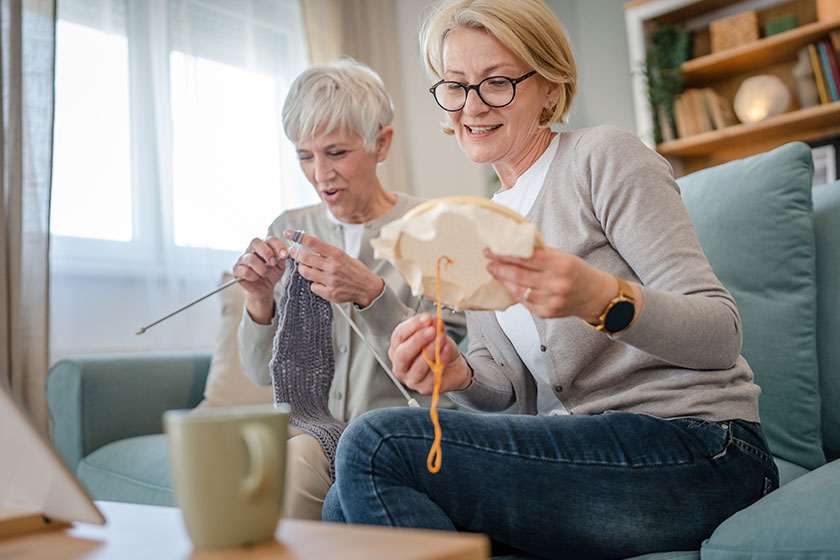Many families seek ways to support their loved ones experiencing changes associated with dementia. Taking steps to address cognitive and emotional needs can make a significant difference to their overall well-being. Engaging in purposeful activities offers benefits for memory, focus, and overall mental health. This post explores strategies to help slow down dementia progression through enjoyable and meaningful activities.
Stimulating Memory with Simple Daily Cognitive Exercises
Simple cognitive exercises activate memory recall and mental processes. Activities such as recalling past events, discussing family stories, or identifying items from old photographs encourage mental engagement. Crossword puzzles and word association games can also strengthen memory pathways. These practices are easily incorporated into daily routines, providing consistent cognitive stimulation.
Repetition and routine are critical for older adults dealing with memory challenges. Familiar tasks like sorting objects by color or organizing items can offer mental stimulation without causing frustration. Incorporating simple memory exercises helps maintain a sense of accomplishment while fostering mental resilience.
Encouraging Social Interaction to Promote Brain Health
Meaningful interactions with others contribute to improved brain health by reducing isolation and encouraging mental activity. Regular visits with friends, family, or group participation in retirement activities allow older adults to remain socially connected. Conversations that involve laughter, shared stories, or debates enhance mental agility and emotional well-being.
Structured social events, such as book clubs or themed discussion groups, provide opportunities to engage with others. These interactions challenge the brain to process information, form new ideas, and adapt to changing social contexts. Maintaining an active social life builds a supportive environment for overall mental health.
Enhancing Focus with Puzzles and Problem-Solving Games
Puzzles and problem-solving games improve concentration and logical thinking. Jigsaw puzzles, sudoku, and board games encourage focus while providing a sense of satisfaction upon completion. These activities promote patience and determination, helping to strengthen neural connections in the brain.
Games with adjustable difficulty levels can suit varying cognitive abilities, ensuring everyone feels included. Regularly engaging in such challenges not only strengthens attention spans but also fosters an enjoyable pastime that encourages cognitive growth.
Incorporating Physical Activities to Improve Mental Clarity
Physical activities benefit mental clarity by improving blood flow and oxygen to the brain. Gentle exercises like walking, stretching, or yoga promote relaxation and reduce mental fatigue. Outdoor activities, such as gardening or birdwatching, provide sensory engagement, improving alertness and reducing stress.
Regular movement aids in releasing endorphins, which uplift mood and enhance overall well-being. Incorporating physical activity into daily life ensures a balance between cognitive and physical health.
Using Creative Outlets for Emotional and Cognitive Benefits
Creative outlets such as painting, drawing, or writing allow older adults to express themselves while engaging their minds. Artistic activities stimulate different parts of the brain, enhancing problem-solving and imagination. These pursuits offer a therapeutic way to channel emotions and encourage creativity.
Crafting projects, such as knitting or making collages, provide an opportunity for tactile engagement. These hobbies promote fine motor skills and help individuals maintain their sense of identity and purpose.
Practicing Mindfulness Techniques to Reduce Mental Stress
Mindfulness techniques like deep breathing and meditation calm the mind and reduce stress. Guided imagery and progressive relaxation exercises teach focus and self-awareness. These techniques help individuals manage anxiety, fostering a sense of inner peace.
Setting aside moments of quiet reflection in a calming space can enhance relaxation. Practicing mindfulness supports cognitive and emotional health by addressing mental stress and promoting clarity.
Playing Music to Enhance Memory and Emotional Well-Being
Music has profound effects on memory and emotions. Listening to familiar songs can evoke memories and stimulate cognitive activity. Singing or playing musical instruments further encourages engagement, activating multiple areas of the brain simultaneously.
Creating playlists of favorite songs or exploring new genres can bring joy and emotional connection. Music fosters relaxation and is a powerful tool for enhancing the well-being of older adults.
Maintaining Routine Activities to Build Daily Consistency
Consistency helps individuals with dementia feel secure. Maintaining a structured schedule that includes mealtimes, hobbies, and bedtime routines fosters a sense of stability. Familiarity reduces confusion, enabling older adults to navigate their day with greater ease.
Daily routines that incorporate meaningful activities encourage mental engagement and ensure a sense of purpose. Creating a predictable environment supports both cognitive and emotional well-being.
Support Cognitive Health with Our Memory Care Program
Our memory care program is designed to provide a nurturing environment where residents can thrive through engaging activities and thoughtfully curated amenities. From cognitive exercises and creative outlets to social gatherings and structured routines, our program fosters mental stimulation, emotional connection, and overall well-being. With personalized care plans and a variety of enriching opportunities, we create a supportive community tailored to the unique needs of each resident. Contact us today to learn how our memory care program can help your loved one lead a fulfilling and joyful life.







